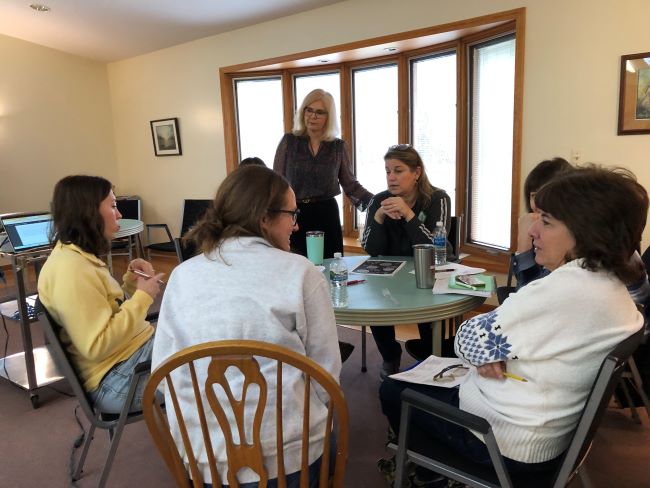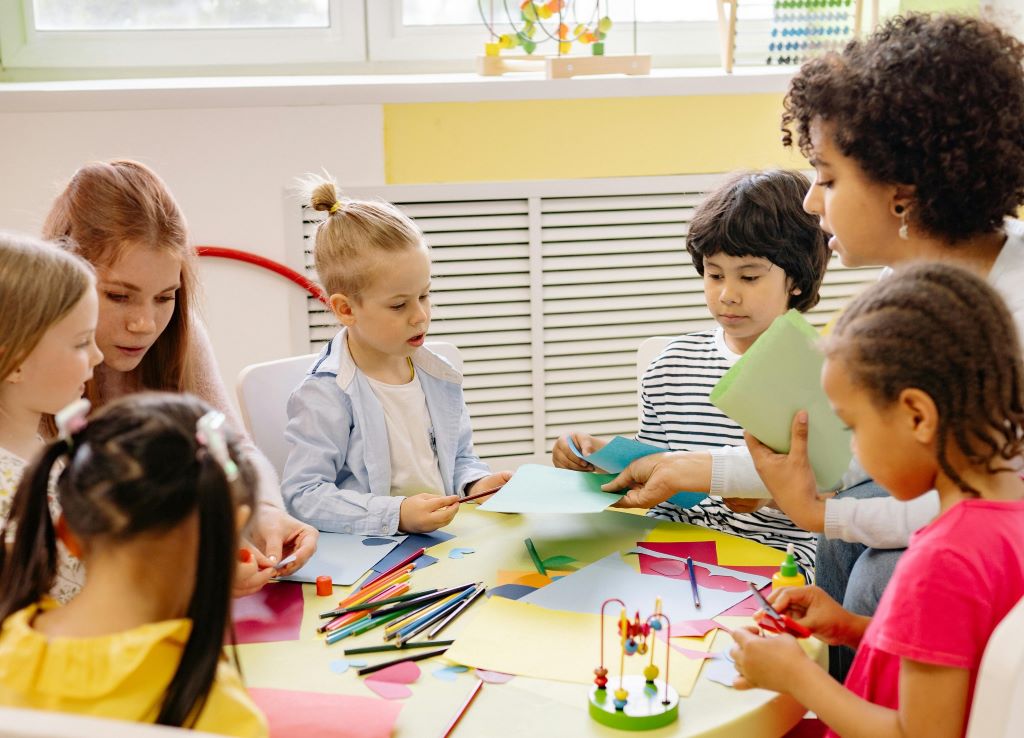
Professional Development
Growth Mindset Training for Educators
Usable Tools for My Classroom
Psychologist Carol Dweck, renowned for her work on mindset and motivation, identifies two mindsets—fixed and growth—that influence how we perceive our lives, work, and relationships. A fixed mindset is the belief that intellectual abilities are “fixed” or unchangeable throughout life. In contrast, a growth mindset reflects the belief that intelligence and skills can improve through learning and effort. Our growth mindset training for educators empowers teachers to embrace and model this mindset, fostering student success and resilience.
Dweck (2016) explains that individuals with a fixed mindset view setbacks, such as poor test results or career demotions, as permanent failures. “People with a fixed mindset expect ability to show up on its own, before any learning takes place” (Dweck, 2016, p. 24). These individuals may believe talent is innate and see hard work as futile because they assume improvement is impossible.
A growth mindset provides individuals with the motivation to succeed because they understand intelligence is malleable and can grow through effort and persistence. People with a growth mindset draw connections between their improvement strategies and the results they achieve, continuing to persevere until they reach their goals. Teachers can develop this approach through our effective teacher professional development programs, including practical educator skill improvement workshops that guide them in fostering growth mindset principles in their classrooms.
Growth Mindset and Self-Directed Learning Workshops
Our Growth Mindset Training for Educators and Self-Directed Learning Training can help you plan long-term professional development. These effective teacher professional development programs provide practical skills for educators.
Our Training Program:
Our effective and practical teacher professional development programs, such as Growth Mindset Training for Educators, include teaching strategies, activities, and materials that help students understand and adopt a growth mindset. These programs enable teachers to model the behaviors and strategies necessary for success, ensuring students internalize these values.
| Fixed Mindset “I just can’t learn math; I’m not good at it” | Growth Mindset “Math is hard, but if I keep trying, I can get better at it” |
| Believe intelligence is something you’re born with…or not | Believe intelligence is the result of effort and continued work |
| Desire to look smart, to avoid looking dumb | Desire to learn, even if it takes effort |
| Tend to see challenges as threatening | Tend to embrace challenges as fun and exciting |
| Tend to give up when things get hard | Tend to persist in the face of setbacks |
| Ignore criticism | Learn from criticism |
| Feel threatened when others are successful | Find inspiration and lessons in others’ successes |
| See the path to success as something out of their control | See their own effort as the path to success |
Pictures from our practical educator skill improvement workshops:



Modeling growth mindset: why teachers must start with themselves
Teaching students about growth mindset begins with educators reflecting on their beliefs, resilience, and ability to adapt to challenges. Teachers who model a growth mindset demonstrate that setbacks are opportunities for learning and improvement, creating a classroom culture where persistence and adaptability thrive. By cultivating their own resilience, educators are better equipped to navigate changes, meet diverse student needs, and inspire their students to approach difficulties with curiosity and confidence. This self-examination not only enhances teaching practices but also ensures that lessons in growth mindset resonate authentically with students.

Want to learn more about resilience and educator well-being?
Check out the website and services of Dr. Paula Apostolou. Dr. Paula is a passionate educator & coach, and founder of Recentered, and your advocate & support for creating balance in your life!
Supporting positive engagement and energized learning
Fostering a growth mindset starts with teaching students about its benefits and guiding them to embrace the idea that intelligence grows through effort and learning. Teachers play a critical role by modeling this mindset and incorporating evidence-based strategies. Through our growth mindset training for educators, we provide actionable tips and tools to help students develop perseverance and resilience:

- Teach about growth mindset and how the brain works
- Model practical optimism
- Teach growth mindset vocabulary
- Reframe negative self-talk
- Praise effort and learning process
- Display student work in progress
- Create a grading rubric focusing on effort
- Frame mistakes as part of learning
- Teach students how to find and access useful resources
- Incorporate physical activity for energized learning
What does a growth mindset classroom look like?

A growth mindset classroom fosters a dynamic learning community where flexibility, inclusivity, and accessibility thrive. It features flexible seating arrangements, interactive learning walls, and accommodates diverse learning styles and groupings. Additionally, it ensures resources are readily accessible, empowering students to take ownership of their learning journey.



